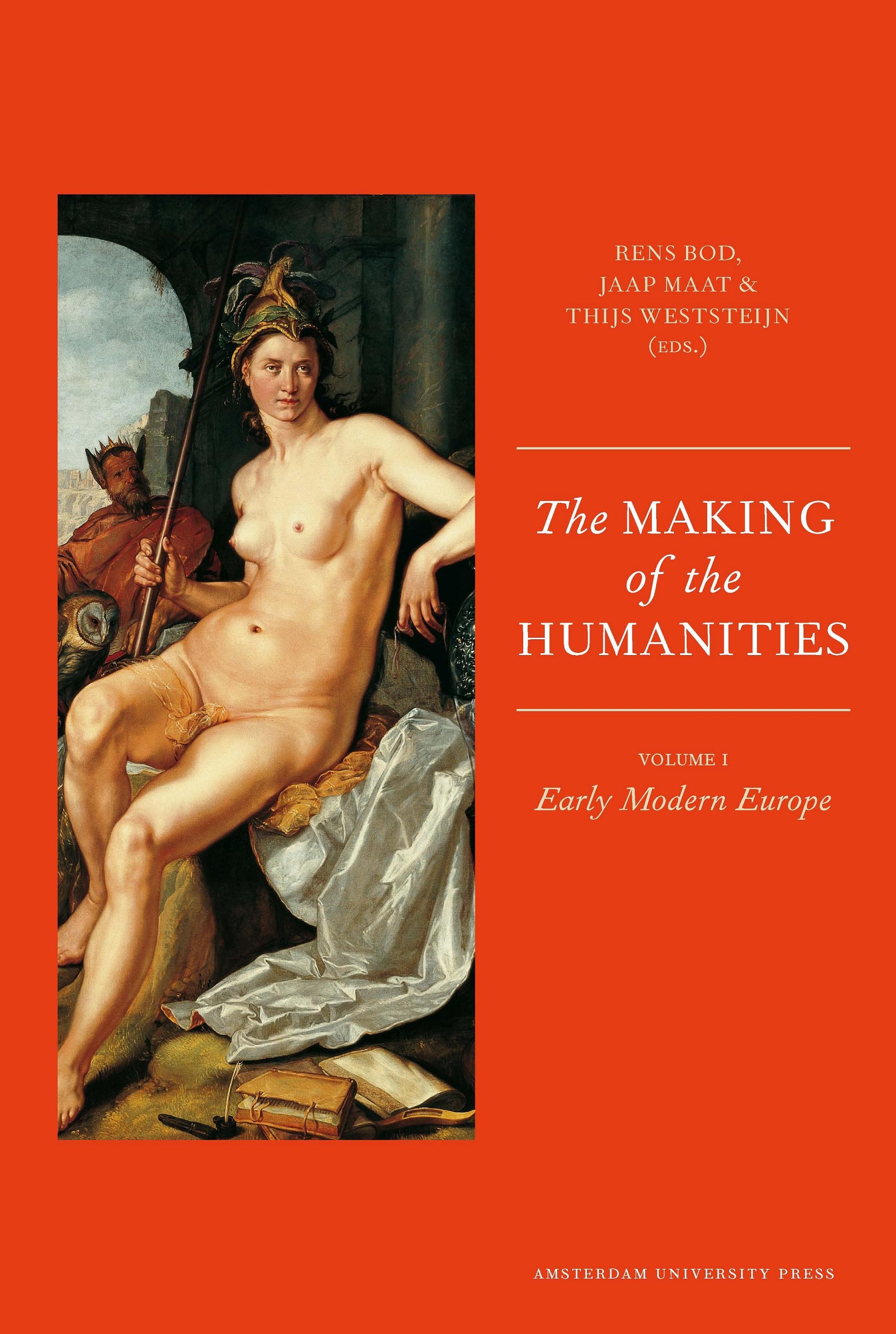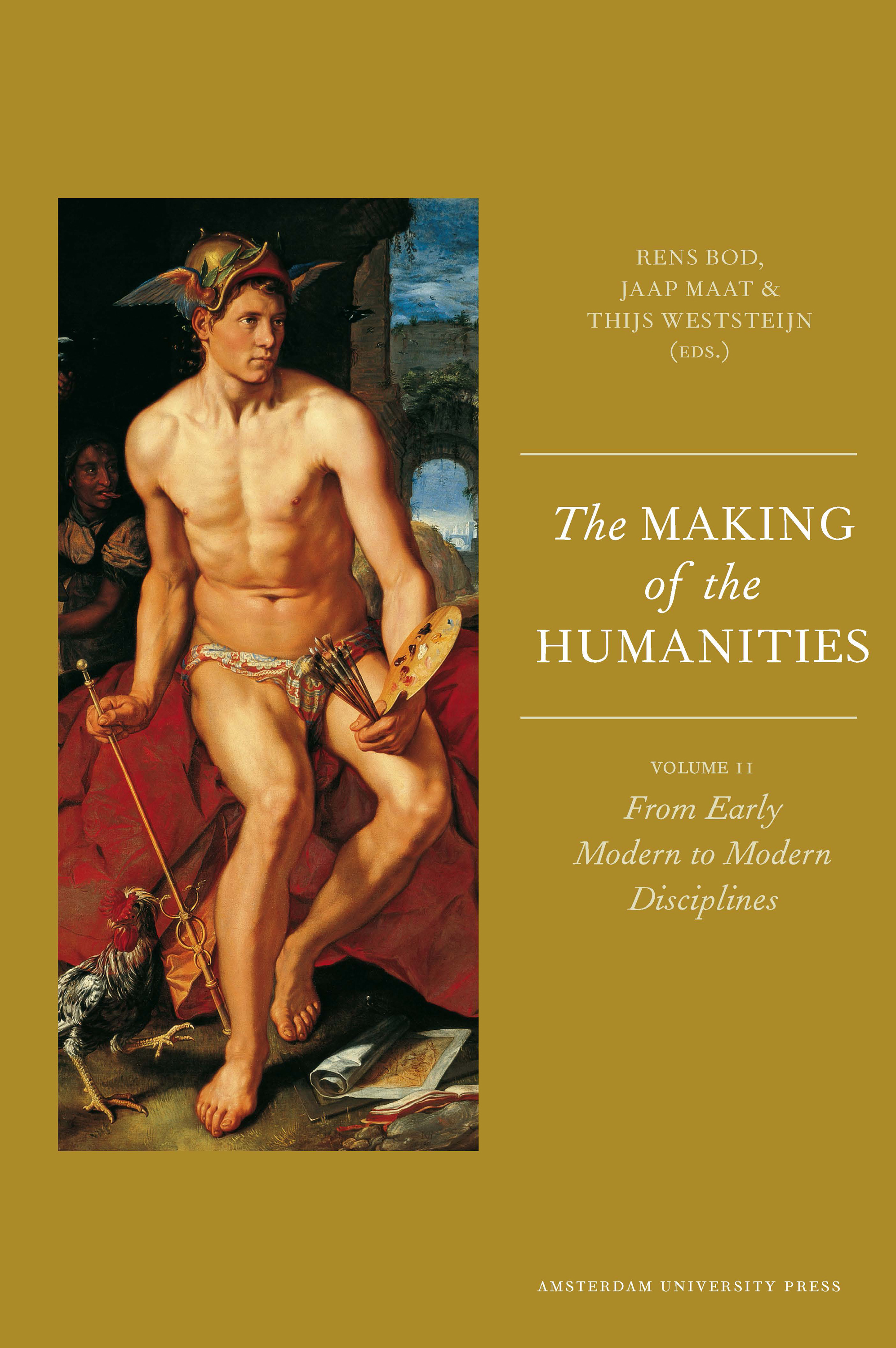Rens Bod, Jaap Maat, Thijs Weststeijn (eds.): The Making of the Humanities, Vols. 1–2 (2010–12)
Filed under book | Tags: · art, art history, historiography, history, history of philosophy, history of science, humanities, language, linguistics, literary theory, logic, musicology, philology, philosophy


“The Making of the Humanities is the first step towards the development of a comparative history of the humanities. Specialists in philology, musicology, art history, linguistics, literary theory, and other disciplines highlight the intertwining of the various fields and their impact on the sciences.
The first volume in the series focuses on the early modern period. Different perspectives reveal how the humanities developed from the ‘liberal arts’, via the curriculum of humanistic schools, to modern disciplines. The authors show in particular how discoveries in the humanities contributed to a secular world view, pointing up connections with the scientific revolution. The main themes are: the humanities versus the sciences; the visual arts as liberal arts; humanism and heresy; language and poetics; linguists and logicians; philology and philosophy; the history of history. Contributions come from a selection of internationally renowned European and American scholars, including Floris Cohen, David Cram, and Ingrid Rowland. The book offers a wealth of insights for specialists, students, and those interested in the humanities in a broad sense.
The second volume investigates the changes in subject, method and institutional context of the humanistic disciplines around 1800, offering a wealth of insights for specialists and students alike. Point of departure is the pivotal question whether there was a paradigm shift in the humanities around 1800 or whether these changes were part of a much longer process. The authors provide an overarching perspective including philology, musicology, art history, linguistics, historiography, philosophy and literary theory. They also make clear that the influence from the East, from the Ottoman Empire to China, was crucial for the development of the European humanistic disciplines.”
Publisher Amsterdam University Press, Amsterdam
Open Access
ISBN 9789089642691 & 9789089644558
400 & 432 pages
Reviews: Sandrine Maufroy (H-Net, 2011, of Vol 1), Anja-Silva Goeing (Renaissance Quarterly, 2012, of Vol 1), Charles G. Nauert (Intellectual History Review, 2012, of Vol 1)
Conference: 2008, 2010.
Publisher: Vol. I, Vol. II.
OAPEN: Vol. I, Vol. II.
Volume I – Early Modern Europe (updated on 2022-12-20)
Volume II – From Early Modern to Modern Disciplines (updated on 2022-12-20)
Volume III
Peter Sloterdijk: You Must Change Your Life: On Anthropotechnics (2009/2012)
Filed under book | Tags: · anthropology, anthropotechnics, christianity, education, enlightenment, history of philosophy, modernity, philosophy, religion

“In his major investigation into the nature of humans, Peter Sloterdijk presents a critique of myth – the myth of the return of religion. For it is not religion that is returning; rather, there is something else quite profound that is taking on increasing significance in the present: the human as a practising, training being, one that creates itself through exercises and thereby transcends itself. Rainer Maria Rilke formulated the drive towards such self-training in the early twentieth century in the imperative ‘You must change your life’.
In making his case for the expansion of the practice zone for individuals and for society as a whole, Sloterdijk develops a fundamental and fundamentally new anthropology. The core of his science of the human being is an insight into the self-formation of all things human. The activity of both individuals and collectives constantly comes back to affect them: work affects the worker, communication the communicator, feelings the feeler.
It is those humans who engage expressly in practice that embody this mode of existence most clearly: farmers, workers, warriors, writers, yogis, rhetoricians, musicians or models. By examining their training plans and peak performances, this book offers a panorama of exercises that are necessary to be, and remain, a human being.”
First published in German as Du mußt dein Leben ändern, Suhrkamp, Frankfurt am Main, 2009.
Translated by Wieland Hoban
Publisher Polity Press, 2012
ISBN 0745649211, 9780745649214
500 pages
review (Keith Ansell-Pearson, LA Review of Books)
review (Michael Hübl, Metropolis M)
commentary (Bruce Sterling, Wired)
commentary (Sanne van der Hout)
Hayden White: Metahistory: The Historical Imagination in Nineteenth-Century Europe (1973)
Filed under book | Tags: · 1800s, historiography, history, history of philosophy, knowledge production, philosophy, philosophy of history, synecdoche

In White’s view, beyond the surface level of the historical text, there is a deep structural, or latent, content that is generally poetic and specifically linguistic in nature. This deeper content – the metahistorical element – indicates what an “appropriate” historical explanation should be.
Publisher The John Hopkins University Press, 1973
Johns Hopkins Paperbacks edition, 1975
ISBN 0801817617, 9780801817618
464 pages

